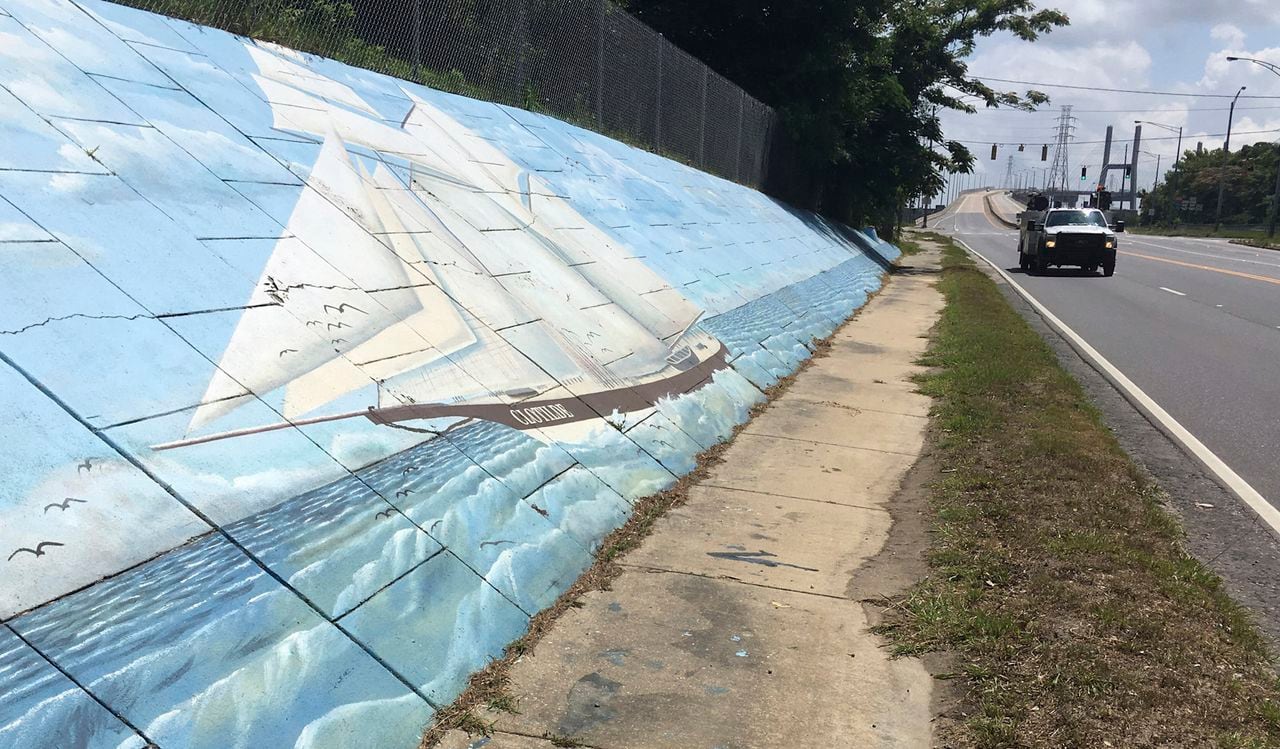Africatown on â60 Minutes:â âWeâre going to start doing thingsâ
What’s the difference between reparations and reconciliation? Between accountability and blame? Between intention and meaningful action? Questions about how to turn a hard past into a promising future for Africatown might not have been answered in a new “60 Minutes” segment, but it showed that a historic discussion has begun.
On Sunday, the CBS news show aired an extended segment in which representatives of the Clotilda Descendants Association sat down with descendants of Timothy Meaher. It was Meaher who set in motion the notorious final voyage of the Clotilda, bringing the last known group of Africans into slavery in the United States, long after such slaving voyages were outlawed.
“60 Minutes” correspondent Anderson Cooper, who’s reported on Africatown before, led the extended segment, which aired Sunday night. It can be seen in full at www.cbsnews.com.
Some key points of the program:
- The episode features a compact retelling of the Clotilda/Africatown story. While most of the information is familiar, marine archaeologist James Delgado describes the hold of the Clotilda as smaller than expected, a space where people basically were stacked on shelves for weeks. There was about a foot and a half of vertical space between shelves, he said. “The British had developed a rule on how to do this,” says Delgado. “So it was a foot and a half [side to side] by five feet [in length] for a man foot and four inches for a woman and a foot for a child. … When you use that very bureaucratic, cruel, evil math, you could cram the 110 people in there in horrific conditions.”
- The second half of the segment features a meeting between sisters Meg and Helen Meaher, great-granddaughters of Timothy Meaher, and three representatives of the Clotilda Descendants Association: Joycelyn Davis, Pat Frazier and CDA President Jeremy Ellis. Meg Meaher is described as “an accountant who now oversees the family’s business holdings and property” along with her sister Helen Meaher, an attorney. My hope is that this can be an example of what reconciliation looks like for the nation as well as start the healing process for a number of descendants,” says Ellis. “You know, we can offer this generation’s heartfelt apology, but it’s easy to say things,” says Helen Meaher. “We’re going to start doing things.”
- Why was this meeting so long in coming? “We were silent for far too long and we were distant for far too long and we’re very happy to be able to finally break the silence and to narrow the distance,” says Meg Meaher. “So our family is all, it’s like some other families, we have lots of layers and complexities and some dysfunctions and we have been in a lawsuit among family members and that finally resolved just a year ago. So now it’s really, it’s our generation that’s been able to step up.”
- The segment touches on Meaher ownership of land in and around the Africatown community. Though no plan of action is resolved, Ellis and Davis speak about hopes the land can be used to benefit the community, possibly through transfer to a land trust. “We believe that within that historic district of Africatown, there are parcels of land that we should have ownership there,” says Ellis. Cooper mentions the sale of one parcel to the city of Mobile, and the donation of additional land around it.
- Meg Meaher says that thus far, she and her sister have found no artifacts that might have belonged to Clotilda survivors or be associated with the ship’s voyage.
- Both sides are aware of the complexities of the situation. Meg Meaher says the family doesn’t want to act in a way that generates conflict among Africatown’s supporters. Ellis says he has to be mindful that, for all the focus on Africatown, many descendants of Clotilda survivors don’t live there. “I totally understand they’ve come to the table trying to do the right thing and they want to be intentional with the decisions that are made,” says Ellis. “I totally understand that perspective. … I agree that it’s not easy work. Even the ask is, isn’t easy, right?”
- The segment illustrates a small step forward: Descendants say it’s an issue that property markers in Africatown still bear the name of Meaher, a man who enslaved the ancestors of some of the people still living there. The Meahers agree the markers can go, and the program shows one being pulled up. “We can work to remove those monuments, says Meg Meaher. “I know that’s a small step but that it’s not something you have to see every day. And so that’s the first step that we can take.”
The full report can be seen at www.cbsnews.com.
